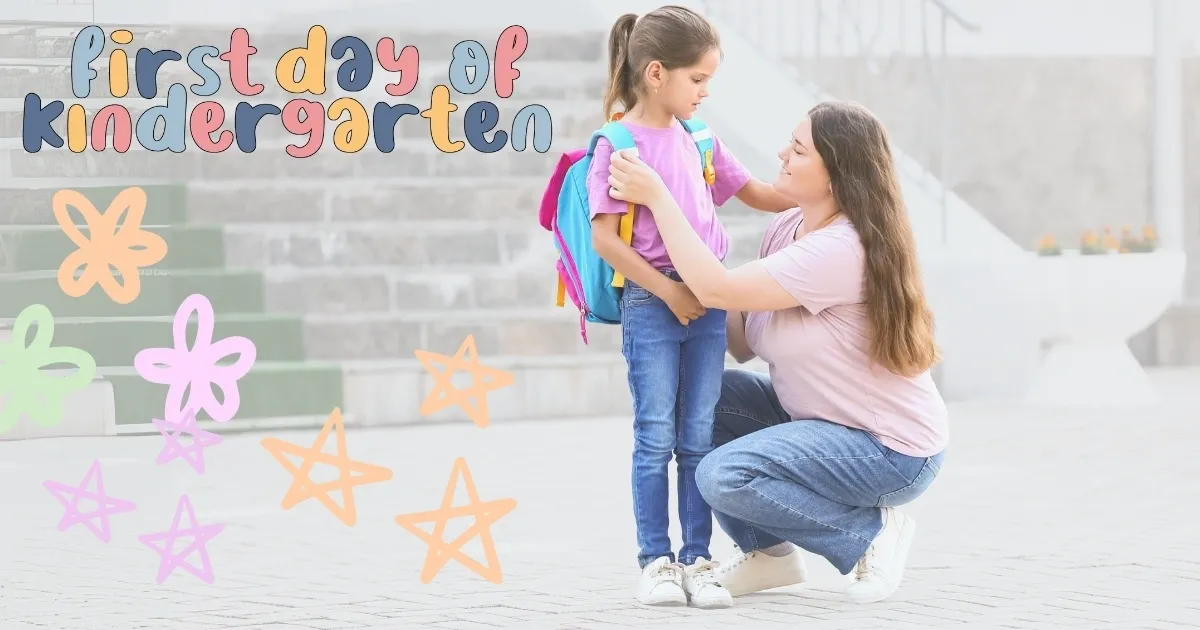The Long Goodbye: A Parent’s Guide to Separation Anxiety

By Lindsay Uffer, M.S.
Back to School or 1st Time at School
Labor Day weekend is rapidly approaching, which means one thing: back to school – or the very first day of school for many kindergarten students. This period can bring anxiety and concern for both children and parents as they separate from one another, potentially for the first time. Are you or your rising kindergartener worried about transitioning from summer to school? Are you nervous about handing your new student off to a teacher or a bus driver? Is the idea of being apart from one another stressful to you and your child? Don’t worry – you’re not alone! This is normal and expected!
Signs of Separation Anxiety
The first day of school drop-off is often challenging for kids. Common signs of separation anxiety may include your child:
- Begging you to stay with them
- Complaining of physical pain (headache, stomachache, etc.)
- Crying, screaming, or acting physically aggressive
- Physically clinging to you
- Sleeping poorly leading up to the first day of school
How to Reduce Separation Anxiety
That might sound horrifying, but don’t worry. These responses can be avoided. Here’s a list of five things you can do in advance to reduce your child’s (and your own!) separation anxiety:
- Visit the School - Scheduling a visit with the school in advance, and potentially meeting the teacher, can increase familiarity and decrease nerves.
- Practice - Arranging for playdates or hiring a babysitter will allow your child to understand what it means to separate from their parents.
- Role-Play - Role-playing possible first-day situations will prepare your child for scenarios that may come up during the start of school. For example, you and your child could practice meeting the teacher for the first time or introductions to new people.
- Read a Book - Reading books that discuss anxiety before the first day of school will show your child that it is normal and okay to be nervous. Some helpful books are The Kissing Hand by Audrey Penn, Llama Llama Misses Mama by Anna Dewdney, The Night Before Kindergarten by Natasha Wing, and First Day Jitters by Julie Danneberg.
- Collaborate - Making sure your child’s teacher and support staff are aware that your child is anxious will help them to provide the best support possible.
In the Moment Tools:
Even if you do all of the things listed above, drop off might still be a challenge. Here’s a list of five things you can do in the moment:
- Be Consistent - The best thing you can do in the moment is maintain your pre-established routine. Making sure your child wakes up at the same time every day and maintains a regular morning routine allows them to feel comfortable with a dependable schedule. Having a consistent drop-off routine is also helpful, so if possible, the same person should drop the child off at school or the bus stop every morning. For the start of the school year, if possible, it is best for your child to always either take the bus or be dropped off at school, rather than a mix-and-match approach. It may also be helpful to practice this routine a few days before school starts.
- Keep Goodbyes Brief - Although easier said than done, keep the goodbye with your child brief. The longer you stay with your child at school or the bus stop, the harder it will be for both of you to leave one another.
- Transition Objects - Some children find it comforting to have a transition object they feel connected to. Some examples include a stuffed animal, a small toy, or a fidget toy. The transition object should be something your child chooses, giving them autonomy and ensuring it’s something they feel connected to. It is important that your child knows that the transition object should stay in their backpack during the school day once they arrive at their classroom.
- Stay Calm - Your child looks up to you as a model and feeds off your emotions. Try to stay calm, even if you’re feeling anxious or your child is making you upset. Hopefully, that calm energy will be modeled to your child.
- Don’t Cave - It can be hard in the moment to stand your ground, but avoidance only increases anxiety in the long run. Going to school is not optional!
It's not just the kids
Kindergarten drop-off can be just as challenging for parents as it is for kids. Be prepared to feel mixed emotions – pride, guilt, sadness, anxiety, and maybe even relief. It’s normal to feel these emotions during transition periods. Make sure you take time for yourself and find your support system. Use this time as an opportunity to discover what’s next for you.
Remember you’re not alone! If you need more tips and tricks, consult with your child’s school, a pediatrician, or a mental health professional.
More Blog Posts
.webp)
OCD Clinical Trial at Bio-Behavioral Institute
.webp)
Helping Children Cope with Bullying: A Therapist's Approach

The Myth of The "Carefree Childhood"

You can experience life again. Let’s take steps together.
At Bio Behavioral Institute, we’re here to be your team and get you back to the life you deserve. Schedule your consultation and take the first step towards a more meaningful life.
Call our office at 516-487-7116 or complete the form to schedule your consultation.
